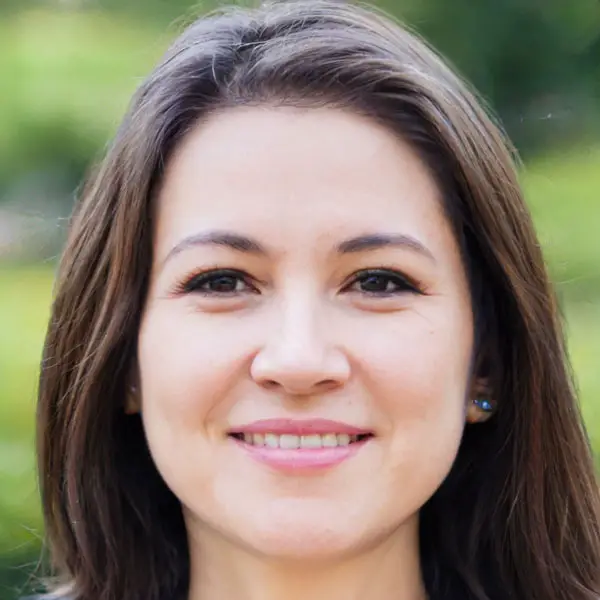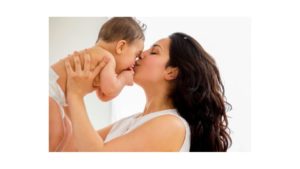For centuries, people have wondered if babies like to be kissed. Unfortunately, that question can’t be answered easily because there don’t seem to be a lot of studies about the topic.
So for this article, I bring you the most interesting findings from several different experiments which might give us some insights into our question. Perhaps the answer is simpler than we think…
Should you kiss your baby?
It depends, you’ve probably heard that it’s a bad idea to kiss your baby due to the risk of spreading cold sores, which are caused by the herpes simplex virus (HSV).
It’s true that if you have an active cold sore or blister, you shouldn’t kiss your baby on the mouth or face because the infection can spread. Cold sores in babies can be a serious condition. But if you don’t have an open sore, you’re free to smooch your little one as much as you like.
Do babies like kisses?
The answer is YES! They do. However, not all babies have the same reaction to kisses, so don’t be surprised if your child doesn’t respond with enthusiasm to each and every kiss you give him.
Babies respond differently to kisses depending on who is doing the kissing. A baby will show more interest in returning a kiss from a parent or grandparent than from a stranger for example.
It’s important that you respect your child’s wishes when it comes to kissing and don’t force him to respond to kisses from anyone he doesn’t seem comfortable with.
Do babies recognize kisses as affection?
Babies can’t quite grasp the concept of physical affection quite yet. As the baby grows and develops, their actions will better reflect their feelings of love and closeness with others.
Until then, kisses on the feet or hand are just as meaningful to babies as kisses on the mouth.
A baby’s brain is still developing, so it’s not surprising that babies won’t fully understand kisses until about a year old.
However, babies can display early signs of love and affection as young as four months old. As babies grow, their actions will begin to better reflect their feelings of closeness with others.
Is it good to kiss your baby?
There is no right or wrong answer. It is all about personal choice. But we would suggest that you don’t kiss your baby on the lips if:
- You have a cold sore (as it can cause a serious infection)
- You or your child has a weakened immune system (as there is a risk of infection)
If you are worried, avoid kissing your baby on the lips. Kiss them on the forehead or cheeks instead.
Do newborns know when you kiss them?
When you kiss your newborn, those tiny muscles around his mouth move accordingly. Even though he/she can’t walk or talk yet, your newborn knows the sound of your voice and will respond by moving his arms and legs and opening his eyes wider.
He’ll also turn his head in the direction from which he hears the sounds. Research has shown that babies prefer the sound of their mother’s voice over other voices, and the same goes for their father’s voice.
What happens if someone kisses your baby?
Although it is a good thing to show love and affection to a newborn, kissing a baby on their lips can be harmful for the child.
The immune system of a newborn is underdeveloped, which makes them more prone to infection and illness.
And when they are kissed on their lips, they tend to swallow saliva from the other person’s mouth and this can cause pneumonia, which can even be fatal if not treated.
Saliva contains microorganisms that may be harmless for adults but may cause diseases in infants.
Conclusion
Enjoying a kiss is something that we develop over time. Some babies will smile when they are kissed, while others will just give you a blank look. This can be a little unsettling if it’s your first time, but shouldn’t stop you from smiling and having fun with your baby.
Resources:
https://www.todaysparent.com/baby/baby-health/can-my-baby-catch-a-cold-sore/

As a mother of four very energetic children, Emilia knows how chaotic motherhood can be. She’s learned a lot of lessons along the journey so far and loves sharing the tips & tricks she’s picked up over the years with anybody else on the same life path.

